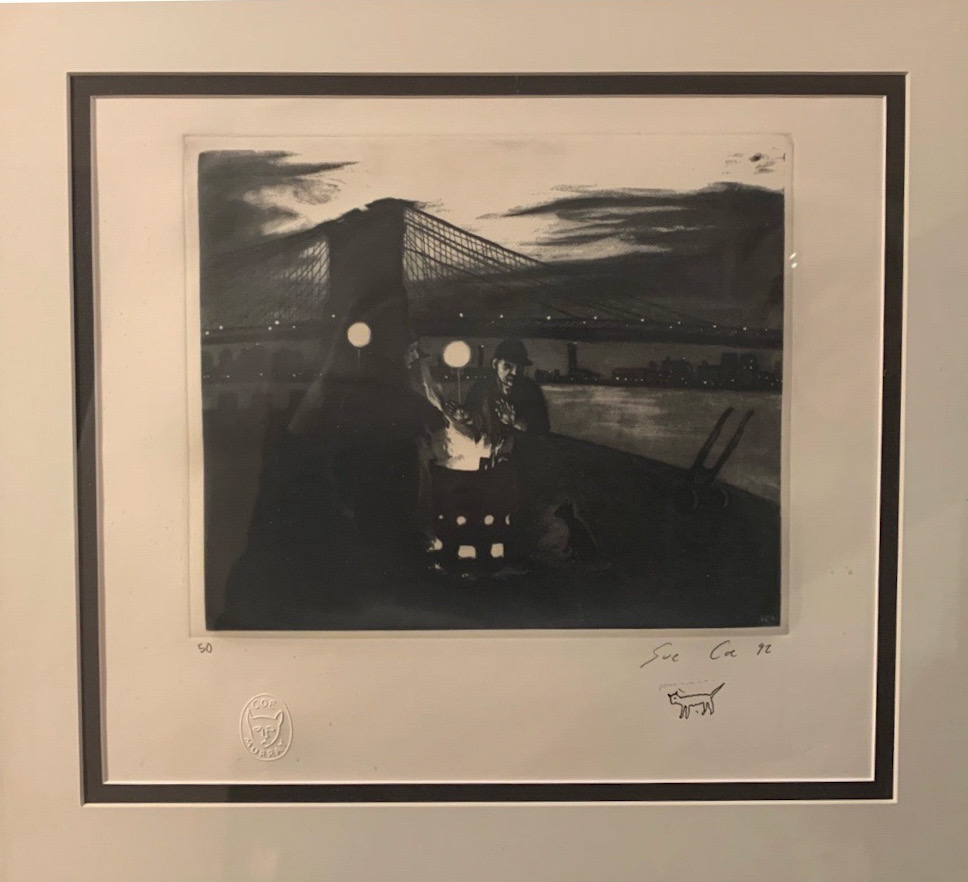Sue Coe
Auction Ended
Sue Coe
Dawn, 1992
Signed and stamped
Photo-etching on white heavy-weight Rives paper
9 1/2 x 11 3/8 (24.1 X 28.9 cm) (unframed)
This work is from an edition of 250 plus 22 Artist Proofs
Provenance:
The Collection of Betsy and Ed Zimmerman
Estimate: $600-800
Categories: Gloria Zimmerman Benefit 2023, The Orchid Foundation 2023
Item condition: New
Since the 1970s, Sue Coe has worked at the juncture of art and social activism to expose injustices and abuses of power. Born in England in 1951, she moved to New York City in the early 1970s and made it her home; in 2012 she became an American citizen. Coe has always been ahead of the curve on social issues, her art a conduit for her progressive politics. Thinking of herself as an activist first and artist second, she has trained her gaze on a wide variety of ills, translating such diverse topics as the perils of apartheid, the life of Malcolm X, and the horror that is the American meat industry into artworks, exhibitions, and books. Coe’s graphic art, filled with unblinking politics, struck nerves when it appeared throughout the 1980s and continues to do so today.
Working as an illustrator since moving to the United States, Coe’s reputation over the next two decades allowed her to set her own agenda with her editors. Her politically pointed illustrations graced the pages of a variety of disparate publications, including The New York Times, The New Yorker, The Nation, Rolling Stone, Esquire, Mother Jones, Entertainment Weekly, and The Progressive, among countless others. While she was able to get a fair number of uncompromised images into print, however, she also grew frustrated by the growing corporatization of the American publishing industry. She started creating her own body of work and sought outlets to get the work published, and soon developed a working relationship with Art Spiegelman and Françoise Mouly, co-founders of the groundbreaking Comics magazine Raw (1979-1991). Not only was Coe’s work featured in almost every issue, Raw also published her books How to Commit Suicide in South Africa (1983) and X (1986). In the mid 1980s, Coe also became a contributor to the left-wing comics anthology World War 3 Illustrated, a relationship that continues to this day. Coe’s work has also appeared in numerous Blab! anthologies published over the past two decades. She is widely regarded as one of the best and most scathing political artists of her time.
Auction History
Auction has finished
Auction failed because there were no bids| November 8, 2023 7:58 am | Auction started | ||

